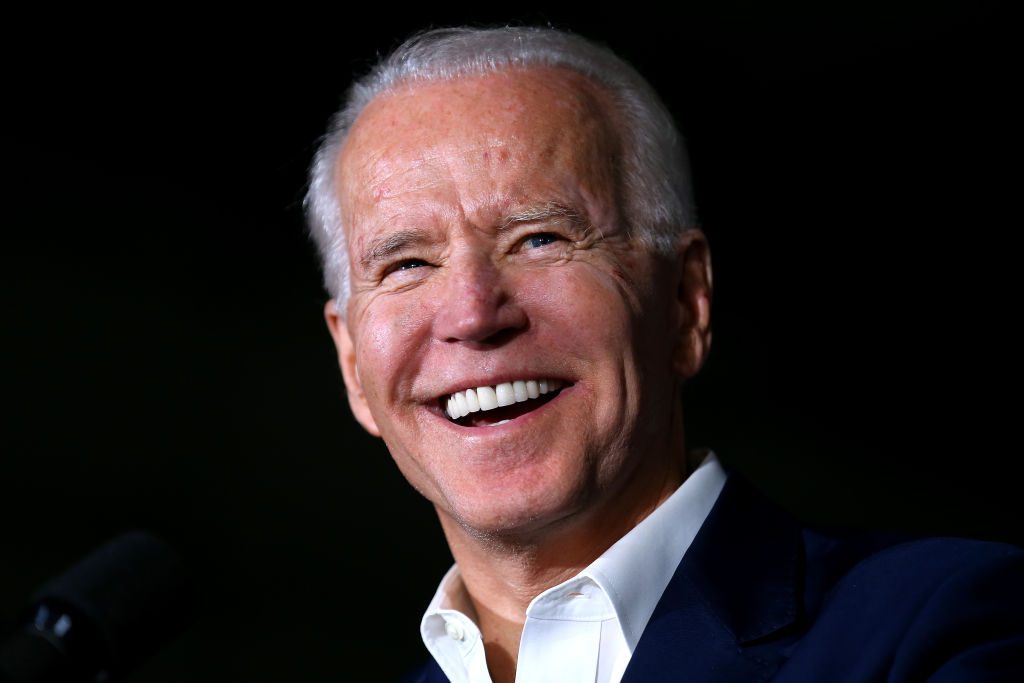Is Biden Trying to ‘Out-Hawk’ Trump on Foreign Policy?

In the time since Joe Biden became the presumptive Democratic nominee for president, supporters of Bernie Sanders have been busy arguing that while their candidate lost, his ideas carried the day. Jamaal Bowman’s decisive defeat of the indiscriminately hawkish New York congressman Eliot Engel, welcome though it is, has only further convinced them that the Democratic establishment is on its back foot.
These days, progressives are, to borrow a line, assured of certain certainties, and principal among these is that Bernie won the so-called “ideas primary.”
Current Affairs editor Nathaniel Robinson writes that “despite people portraying Sanders’ loss as evidence of the left’s failure, it does still actually show that we are ascendant compared to where we used to be.”
In a recent piece for the Quincy Institute’s Responsible Statecraft, Stephen Walt claimed, “The winner in November will be Bernie Sanders.” According to Walt, “U.S. foreign policy is going to move in Bernie’s direction no matter who ends up president in 2021.”
Not surprisingly, it’s a position Sanders himself shares. “Few would deny,” said the Vermont senator as he was suspending his campaign in April, “that over the course of the past five years our movement has won the ideological struggle.”
And Sanders supporters can indeed point to the creation of a number of Biden-Sanders “unity task forces” as evidence that Biden is open to being “pushed left” on six policy areas said to be important to progressives: climate change, criminal justice reform, economy, education, health care, and immigration.
Yet one topic that was and remains absent from the list of task forces is foreign policy.
Indeed, as of this writing, the Biden camp has given anti-interventionist progressives and Democrats little reason for optimism.
Biden’s known foreign policy advisers are a who’s who of the foreign policy establishment. Recent comments by some high-profile members of Biden’s brain trust show an undiminished, and decidedly unprogressive, enthusiasm for regime change wars, sanctions, and nuclear weapons.
Biden’s top foreign policy adviser, former deputy secretary of state Antony Blinken, recently expressed his regret that the Obama administration didn’t do enough to overthrow the Assad regime in Syria. Clearly he would like a second bite at the apple. And in a recent discussion hosted by the American Jewish Committee (AJC), Blinken promised that a Biden administration would keep in place all U.S. sanctions on Iran, including the ones that were put in place by Trump, in violation of the terms of the Iranian nuclear accord. Music to AIPAC’s ears.
Meanwhile, two other Biden advisers, former Defense Department officials Jim Townsend and Michelle Flournoy, recently took to the pages of Der Spiegel to argue against a proposal by the chairman of the social democrats in the Bundestag to remove American nuclear weapons from Germany. Townsend and Flournoy write that the very idea of a Germany without the capacity to drop nuclear bombs “strikes at the heart of the trans-Atlantic bargain.” The idea that Germany might (quite understandably) want to free itself from such a Strangelovian “bargain” left the two former Pentagon officials aghast.
Even worse, as The Atlantic’s Peter Beinart points out, “Instead of challenging the Pentagon’s sky-high budget, Biden’s highest-profile foreign-policy foray since clinching the Democratic nomination has been to try to out-hawk Donald Trump on China.”
Then there’s Biden’s own record on matters of war and peace. As ranking member of the Senate Foreign Relations Committee, Biden appeared to ridicule the testimony of UN weapons inspector Scott Ritter, who testified before the committee in the run-up to the invasion of Iraq. Biden, as we all know, would subsequently vote to authorize the war.
To be fair, as vice president, Biden did at times show instincts that aligned with progressives and anti-interventionists: he opposed the 2009 “surge” in Afghanistan; advised against the disastrous intervention in Libya; and acknowledged the role of the Gulf State tyrannies in supporting ISIS (which he was later forced to walk back in humiliating fashion). So progressives are right to think that the battle over foreign policy is one worth fighting. 
Indeed, dozens of progressive and antiwar groups are actively pushing Biden to embrace a more realistic and restrained foreign policy. The group Demand Progress recently released an open letter signed by 50 national organizations that called on Biden to reject the ingrained militarism of the establishment and pursue “a more just and progressive U.S. foreign policy.”
Similar attempts by progressive and antiwar groups should be applauded—but they shouldn’t get their hopes up.
James W. Carden is a contributing writer for foreign affairs at The Nation. He serves on the board of the Simone Weil Center for Political Philosophy.
Comments